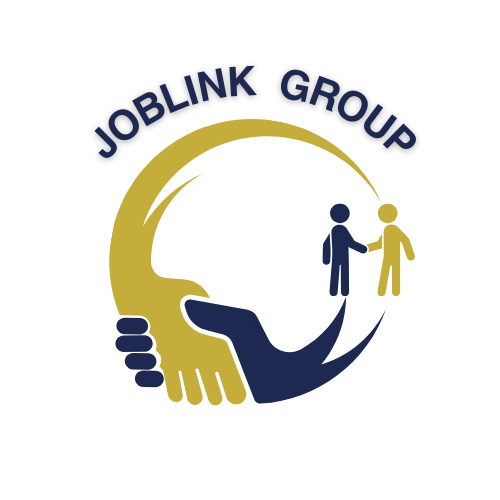The Importance of Continuous Learning: Staying Relevant in a Rapidly Changing Job Market
In today’s dynamic and rapidly evolving job market, continuous learning has become essential for career longevity and success. The advancement of technology and shifting industry demands require professionals to regularly update their skills and acquire new knowledge to remain competitive. This article will discuss the significance of continuous learning, offer guidance on finding learning opportunities, highlight the importance of upskilling and reskilling, and provide practical tips for incorporating learning into your daily routine.
Why Continuous Learning Is Essential
The job market is undergoing constant change due to advancements in technology, automation, and shifting industry trends. These factors are transforming traditional job roles and creating new opportunities while rendering some skills obsolete. Here’s why continuous learning is crucial for professionals:
- Adapting to Technological Changes
New tools and technologies are being introduced regularly, making it necessary for employees to learn and adapt quickly. By staying updated with the latest technology, professionals can keep pace with industry advancements and remain relevant. - Responding to Industry Trends
Continuous learning allows individuals to stay informed about emerging trends, market demands, and best practices in their fields. This knowledge enables them to make informed decisions and anticipate changes that could impact their careers. - Maintaining a Competitive Edge
As more people enter the workforce, competition for jobs increases. By continuously developing new skills, professionals can differentiate themselves and demonstrate their value to employers. - Enhancing Problem-Solving and Innovation
Expanding one’s knowledge base fosters creativity and helps in approaching problems from different perspectives. This adaptability can lead to better problem-solving skills and increased innovation within a team or organization.
Finding Learning Opportunities
The good news is that there are various avenues available for learning and skill development. Here are some effective ways to access new knowledge and enhance your professional growth:
- Online Courses
Platforms such as Coursera, LinkedIn Learning, Udemy, and Khan Academy offer online courses on a wide range of subjects, from technical skills like coding and data analysis to soft skills like communication and leadership. - Professional Certifications
Earning certifications in areas related to your field demonstrates your commitment to learning and can make you more attractive to potential employers. Certifications in project management (e.g., PMP), IT (e.g., AWS), or digital marketing (e.g., Google Analytics) are popular examples. - Workshops and Webinars
Attend workshops and webinars to learn from experts in your industry. These events are often hosted by professional organizations, educational institutions, or private companies and can provide valuable insights. - Industry Conferences
Participating in industry conferences and trade shows allows you to network with peers and learn about the latest innovations in your field. Many conferences also offer educational sessions led by industry leaders. - Reading Industry-Related Publications
Regularly reading industry blogs, newsletters, journals, or books keeps you updated with the latest news and trends. Subscribe to reputable sources and make it a habit to read for at least 15-30 minutes a day.
The Role of Upskilling and Reskilling
To stay competitive in a rapidly changing job market, professionals need to engage in both upskilling and reskilling:
- Upskilling
Upskilling involves enhancing existing skills to keep up with advancements in your current field. For example, if you work in digital marketing, learning about the latest trends in SEO or social media algorithms would be considered upskilling. It enables professionals to stay relevant and perform their roles more efficiently. - Reskilling
Reskilling, on the other hand, entails learning new skills that may be required for a different role or industry. For instance, if your job is at risk due to automation, reskilling in a high-demand area such as data analytics or cybersecurity can open up new career opportunities. - Cross-Training
In addition to upskilling and reskilling, consider cross-training in areas adjacent to your current role. For example, a marketing professional might learn basic coding to work more effectively with web developers. Cross-training increases your versatility and can lead to new job responsibilities or career advancement.
Tip for Choosing Between Upskilling and Reskilling: Evaluate your career goals and industry trends. If your current role is undergoing significant changes, reskilling may be the best option to future-proof your career.
Incorporating Learning into Your Daily Routine
Continuous learning doesn’t have to be overwhelming or time-consuming. With a few simple strategies, you can make learning a part of your daily routine:
- Set Aside Time for Learning
Dedicate at least 15-30 minutes each day for learning. Whether it’s listening to a podcast, reading an article, or taking an online course, consistency is key to building momentum. - Use Learning Apps on the Go
Take advantage of learning apps like Duolingo for language learning, Audible for audiobooks, or Blinkist for book summaries. These apps allow you to learn while commuting, exercising, or during other idle times. - Join a Learning Community
Engage with online communities or forums related to your field. Sites like Reddit, Quora, or Stack Overflow can provide valuable insights and allow you to learn from peers. Being part of a learning group also provides accountability and motivation. - Set Learning Goals
Establish specific, measurable learning goals for each month or quarter. For example, commit to completing one online course per month or earning a certification by the end of the quarter. Having clear goals will keep you motivated and focused. - Incorporate Learning into Your Work
Look for opportunities to apply new knowledge directly in your job. For example, if you learn a new software program, volunteer to use it for a project. Practical application helps solidify new skills and demonstrates your proactive attitude.
Tip for Avoiding Overwhelm: Focus on one or two areas of learning at a time. It’s better to gain in-depth knowledge in a few areas than to spread yourself too thin across many topics.
Conclusion
In a rapidly changing job market, continuous learning is no longer an option; it’s a necessity. The evolving nature of technology, industry demands, and job roles means that staying relevant requires ongoing skill development. By finding diverse learning opportunities, engaging in upskilling and reskilling, and incorporating learning into your daily routine, you can stay competitive and open the door to new career possibilities.
Continuous learning not only boosts career growth but also enhances personal development and adaptability. The more you learn, the better equipped you will be to navigate changes, seize opportunities, and achieve long-term career success. Embrace the mindset of a lifelong learner and make continuous learning a priority in your professional journey.

